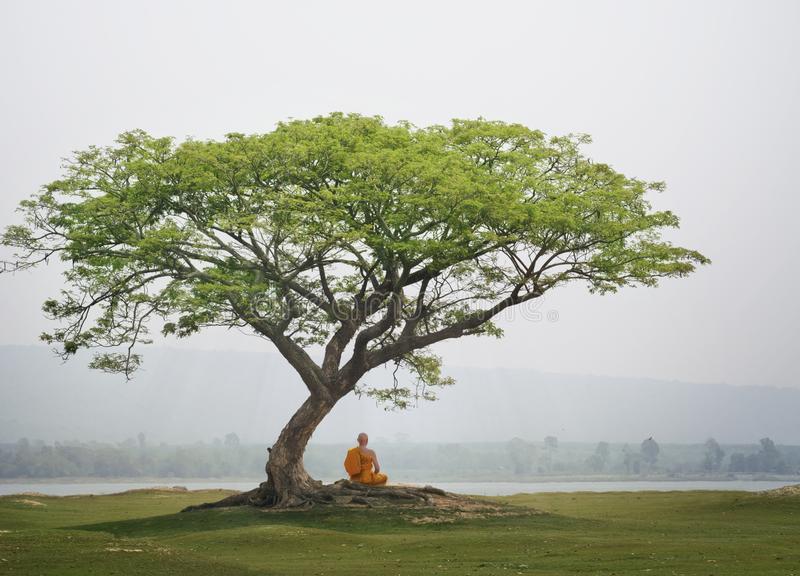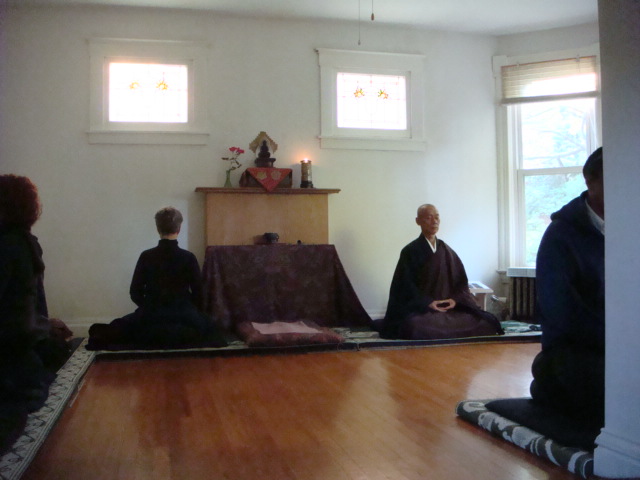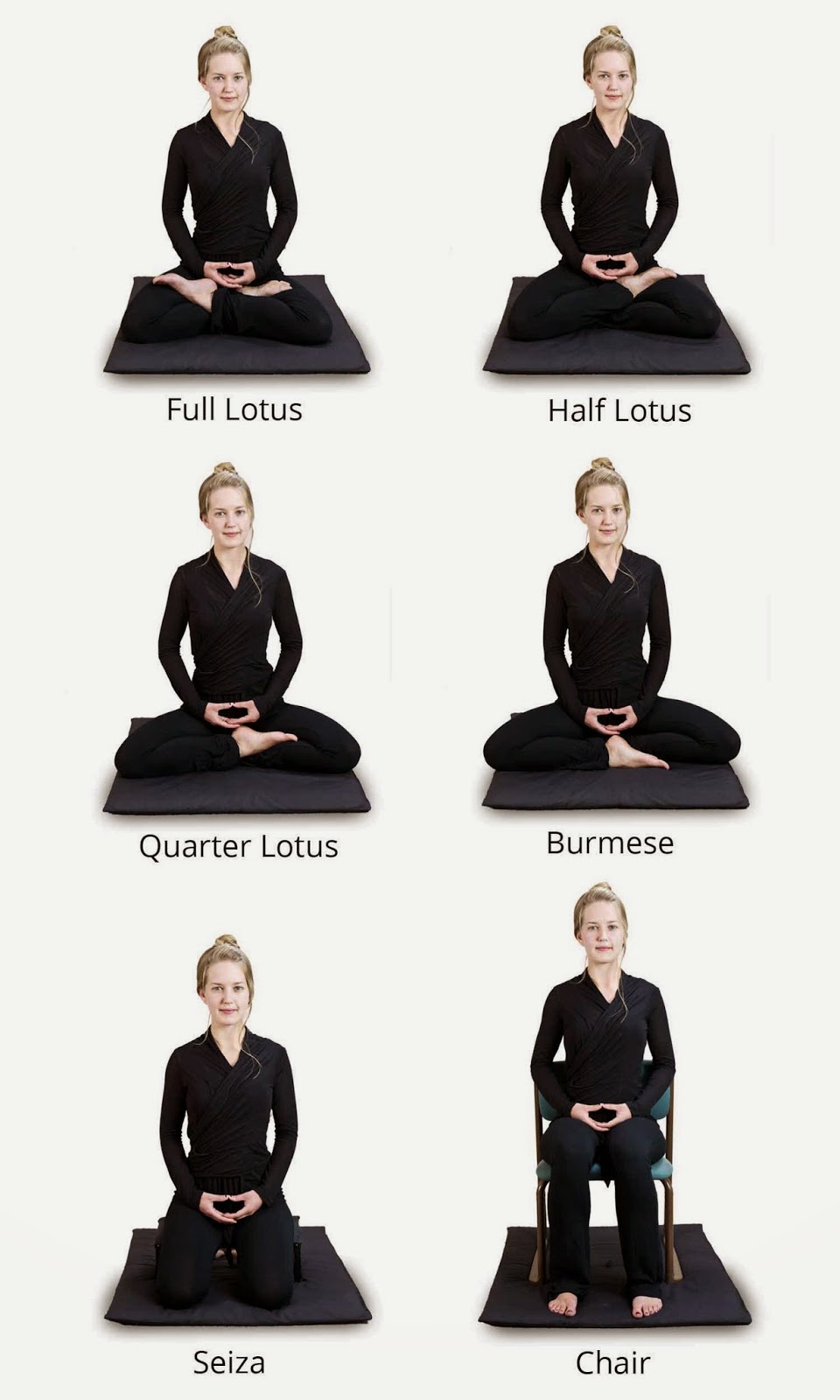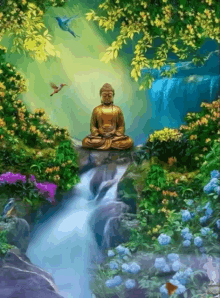Awakening for all: Zazen Gift: Holiness
Anyone can sit, settle in nirvana, see the Dharma, serve and save all, becoming holy, harmonious, healthy, and happy, individually, socially, and environmentally.
Anyone can sit, step forward through the four stages of Zen, saved from emotions, volitions, samsara, and suffering, individually, socially, and environmentally.
Anyone can sit, stay in the four limitlessnesses of friendship, compassion, joy, and equanimity, serving and saving all from samsara suffering throughout space and time.
Anyone can sit, savor limitless life, light, liberation, and love, serving and saving all, securing all the treasures in the limitless world throughout space and time.
November 8, 2024 C.E.
Notes:
1.Zen (jhāna/dhyāna: meditation) is to attain freedom from karma and freedom of dharma/Dharma in full function, returning to zero (suñña/śūnya), more awakened and wakeful than the wakeful state in karma, to and reuniting with holiness (wholly wholesomeness) and limitlessness (cf. four limitlessnesses: friendship, compassion, joy, equanimity).
2.The practice of Zen, the key and core practice of za-zen, sitting meditation, is to still karma, settle in nirvana(nir-vāṇa = ni-vāta: no-wind, of karma, see the Dharma, and serve and save all. This process is categorized in the Four Zen Stages and the Eight Concentration (samādhi) Stages (actually Four Zen Stages plus Four Concentration Stages combined, going together). As shown in the Four Zen Stages thoughts, emotions (the representative five coverings: lust-desire, covetousness-malevolence, sloth-drowsiness, agitation-worries, doubts), and volitions (the representative four fluxes: lust, becoming/identification, views/dogmas, nescience/no witness, of nirvana) are stilled in this order.
Please refer to 5. What is Karma? in “Why Buddhism Now?”
https://buddhism869196463.wordpress.com/%e3%83%9b%e3%83%bc%e3%83%a0%ef%bc%9ahome/
3.Religion derives from Latin religare (reunion). Religion is, thus, to reunite with holiness (wholly wholesomeness, cf. Rudolf Otto’s definition of religion as the Holy) from sin (=separation, separated sick, cf. a-sun-der, sundry).
4.To reunite with the holiness of the limitless ocean of life from being a separated small bubble or foam of ego or group ego is the goal of anyone or a universal religion, where one lives as a true friend in need of all, as expressed in., and who lives in limitless life, light, liberation, and love.
5.Samsara (saṁ-sāra, total flow) means all/constant change of phenomena due to Dependent Co-origination, represented as “birth-death.” Usually we are going through the shift among the six (five) states/ways of human beings, animal beings, hungry ghosts, (fighting devils), hell beings, and celestial beings. These are allegorical states of our mind-world states from moment to moment, not like the Hindu idea of being born to be such after death
Please refer to 3. What Is Life? in “Why Buddhism Now?
https://buddhism869196463.wordpress.com/%e3%83%9b%e3%83%bc%e3%83%a0%ef%bc%9ahome/
6.Nirvana means no wind (of karma imbued with the triple poisons of desire, divisiveness, and delusion), where one can for the first time witness the Dharma world and become awakened from the long night of nescience to the Dharma of all dharmas in calm, clear, controlled, and careful conditions, then prognosticate problems and sufferings in the Four Holy Truths and the Eight Holy Ways.
No-wind of karma stills the two roots (craving and nescience) and stills their results of suffering and samsara [six ways/realms of hell beings, hungry ghosts, (fighting devils), animal beings, human beings, celestial beings], thus become freed (liberation, freedom) from samsara and suffering. One opens the right Dharma-eye there (Right Dharma-eye stored in the exquisite heart of nirvana), attaining countless merits of no moving (blowing) of karma (no moving, no death: ambrosia: amṛta), freed from discrimination, bondage of self, other, that, this, etc. (nothingness, emptiness, no-self, limitless: limitless life, limitless light, no attachment, no obstruction, etc.), realizing the true world (Dharma world, Buddha world, paradise, pure land), freed from straying, delusion, etc.
Please refer to 4. What is Nirvana? in “Why Buddhism Now?”
https://buddhism869196463.wordpress.com/%e3%83%9b%e3%83%bc%e3%83%a0%ef%bc%9ahome/
7.The Four Limitlessness (or Brahma-vihāra: Supreme/Pure-abode) is consisting of friendship (mettā, giving pleasure), compassion (karuṇā, removing suffering), joy (pīti), and equanimity (upekhā/upekṣā, lit. discarding/letting go).
一切の為の覚醒:坐禅贈物:聖性
誰でも坐り、涅槃に安住し、法を見、一切に奉仕し救済できて、個人的にも、社会的にも、環境的にも聖、調和、健康、幸福になれる。
誰でも坐り、禅の四状態を進み、個人的にも、社会的にも、環境的にも感情、意欲、輪廻と苦から救われることが出来る。
誰でも坐り、慈、悲、喜、捨の四無量に住し、時空何処でも輪廻苦から逃れ、一切に奉仕し救済することが出来る。
誰でも坐り、無量寿、無量光、無量解、無量愛を味わい、一切に奉仕し救済し、時空の無限世界で一切の宝を確保出来る。
2024共通年11月9日
註:
1.禅はゼロ(suñña/śūnya:空)に帰り、業にある覚醒状態より更に目覚め覚醒しており、聖(全体健全)と無量(慈悲喜捨の四無量参照)と再結合する十全な活動である。
2.Religion(宗教)はラテン語religare (再結合)に由来する。だから、宗教は罪(sin = 分離、分離病患, cf. a-sun-der, sundry)から聖(holiness = wholly wholesomeness 全体健全、参照 Rudolf Ottoの宗教の定義:the Holy)に再結合することである。
3.エゴやエゴ集団の小さく分離した泡沫から無限の生命の大会の聖性に再結合するのは誰でもの又普遍宗教の目標であるが、 Mitra, Mithra, Metteya, Maitreya, Mazda, Massiah, etc(友を意味する)で表されるように、一切の必要の時の友は真の友として生きることであり、無量寿、無量光、無量解(脱:解放)、無量愛を生きるものである。
4、鍵となる静坐の実践は業を静め、涅槃(nir-vāṇa = ni-vāta: no-wind, 無風、業風の)に安住し、法を見、一切に奉仕し救済する。坐禅(静坐瞑想)は身体・呼吸・頭脳(身口意)業を整え静止する。四禅は、尋求、伺候、喜悦、安楽を静め平静 (upekhā/upekṣā, 字義は捨離)・涅槃に到達する結果の心的(知性・感情・意欲)業を静止する過程を表示している。
「今何故仏教か?」の4(涅槃)と5(禅)を参照:
https://buddhism869196463.wordpress.com/%e3%83%9b%e3%83%bc%e3%83%a0%ef%bc%9ahome/
5.輪廻 (saṁ-sāra, 字義は全‐流)は縁起の故に現象が全体/常時変化することで、生死(発生種滅)で代表される。通常人間、畜生、餓鬼、(修羅)、地獄、天上の五(六)状態/道を変化を経る。これらは私達の刻々の心‐境(境涯:心‐世界)の比喩的状態のことで、死後に生まれるものというヒンドゥー教の考えとは違う。
「今何故仏教か?」の3.生存とは何か?を参照:
https://buddhism869196463.wordpress.com/%e3%83%9b%e3%83%bc%e3%83%a0%ef%bc%9ahome/
6.涅槃は(貪瞋痴で染汚した業の)無風を意味するが、そこで人は静謐・明澄・統制・注意状態で法界を直証し諸法の法に初めて無明長夜から目覚めて、問題と苦に対する四聖諦、八聖道で般若(の知恵:処方)を得る。
業の無風は二根(渇愛と無明)を静止してその結果の苦(四苦八苦など)と輪廻 [地獄、餓鬼、(修羅)、畜生、人間、天上の五(六)道(界)] を静止する、即ち輪廻・苦から自由になる(解脱・解放)。そこでは業による動揺が無く(不動、不死:甘露: amṛta)、我他彼此などの分別・束縛から自由になり(無・空・無我・無量:無量寿・無量光・無著・無碍など)、真理世界(法界、仏界、極楽、浄土)を現観し、迷・惑から自由になり、大局観・甚深・微妙な世界(法身、真実人体)を覚るなど涅槃による正法に眼を開き、無数の功徳を得る(正法眼蔵涅槃妙心)。
「今何故仏教か?」の4.涅槃とは何か?参照
https://buddhism869196463.wordpress.com/%e3%83%9b%e3%83%bc%e3%83%a0%ef%bc%9ahome/
7.四無量(四梵住)は慈(愛:友情:mettā, 与楽)、悲(泯:karuṇā. 抜苦)、喜(悦: pīti)、捨(離:upekkhā/upekṣā)である。
.
.
.
.
.
.
.
.
.
.
.
.
.
.
.
.
.
.
.
.
.




